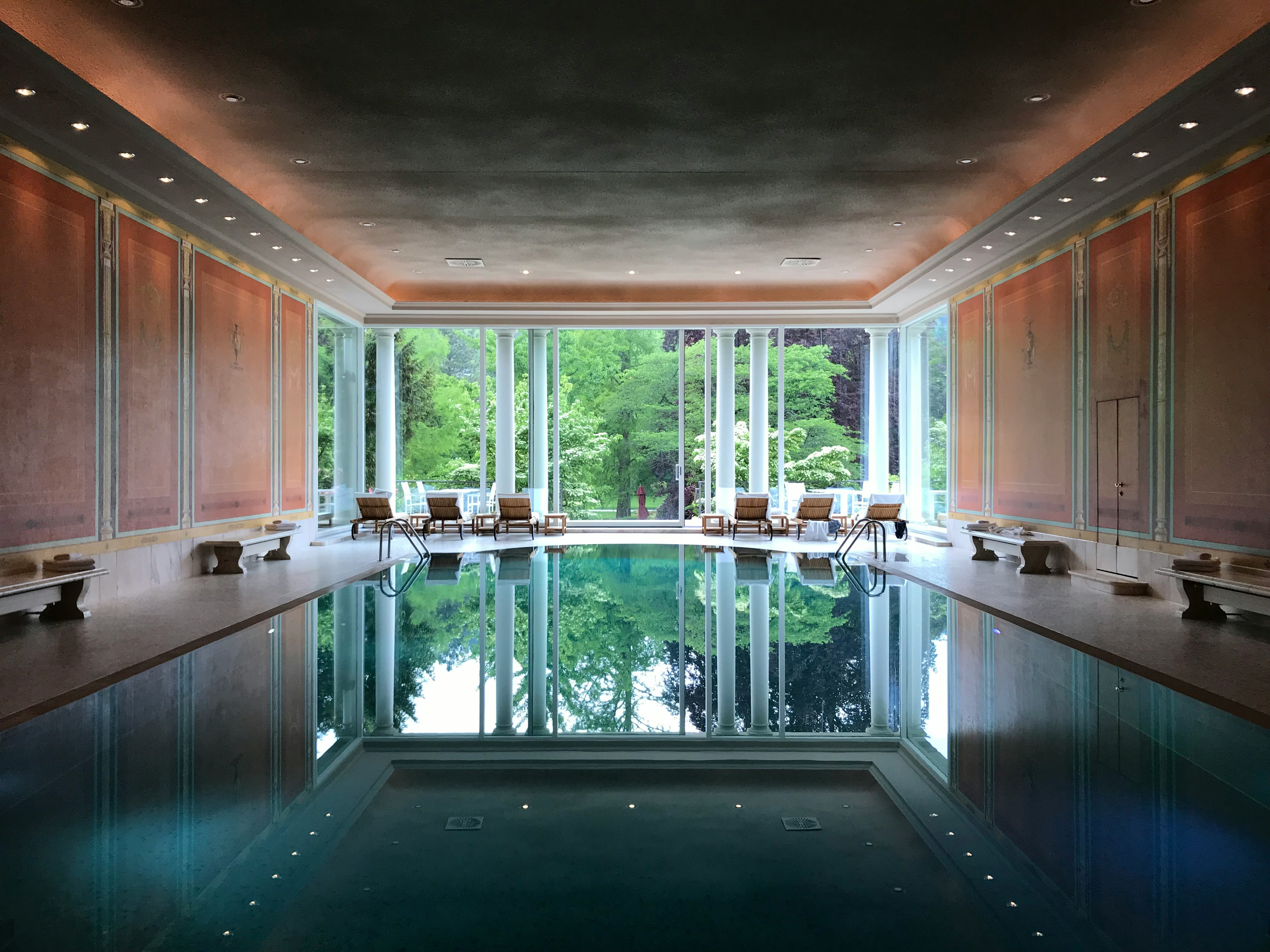Understanding sleep cure fundamentals
Sleep cure therapy originated in the 1920s when Swiss psychiatrist Jakob Klaesi introduced a revolutionary medical treatment at Burghölzli hospital. Initially developed as a psychiatric intervention, this therapy involved keeping patients in a prolonged sleep state for 16-20 hours daily over approximately 20 days using barbiturates.
Today, sleep cure approaches have evolved into three distinct categories:
Medical sleep cures are conducted in healthcare settings under medical supervision. These structured programs typically last 12-20 days and include:
A preparation phase to gradually extend sleep duration
The main treatment phase with 16-20 hours of daily sleep
A 4-7 day withdrawal period
Natural sleep cures represent a gentler approach that can be practiced at home. These self-administered programs focus on:
Extended rest periods of 9-14 hours per day
Digital detox and stress reduction
Light, tryptophan-rich meals to support melatonin production
Thermal spa treatments offer specialized sleep programs combining hydrotherapy, relaxation techniques, and therapeutic education. These structured stays typically last 5-6 days in dedicated facilities, providing a holistic approach to sleep restoration through mineral-rich waters and expert guidance.

Medical benefits and therapeutic applications
Sleep cure therapy has demonstrated significant therapeutic benefits across multiple medical conditions. Clinical studies show that extended sleep periods of 16-20 hours per day over several weeks can effectively treat severe insomnia, anxiety disorders, and chronic fatigue syndrome.
Research from thermal spa centers reveals that supervised sleep cures achieve remarkable outcomes: up to 80% of patients report reduced medication dependence within 6 months. Notably, a landmark study showed 41% of patients completely discontinued benzodiazepine use after completing a therapeutic sleep program.
The medical applications of sleep cures include:
Treatment of acute psychosis and neurosis
Management of severe sleep debt
Recovery from burnout and chronic stress
Anxiety and depression therapy
Support for psychiatric rehabilitation
From a physiological perspective, extended rest periods allow the body to restore natural circadian rhythms. This recalibration of the sleep-wake cycle helps optimize hormone production, particularly melatonin and cortisol levels. Medical experts note improved digestion, nutrient absorption, and immune function among patients undergoing supervised sleep cures.
The psychotherapeutic benefits are equally significant. Extended sleep periods create what specialists call a "therapeutic regression" state, making patients more receptive to psychological treatment. This heightened accessibility to the unconscious mind, combined with reduced external stimuli, provides an ideal environment for processing trauma and emotional disturbances.
Modern medical facilities now offer specialized sleep cure protocols that combine traditional extended rest periods with complementary therapies such as hydrotherapy, relaxation techniques, and psychological support. This integrated approach has proven particularly effective for treating complex cases where conventional treatments have failed.

Natural sleep cure protocols
Building on the therapeutic benefits discussed previously, implementing a natural sleep cure at home requires careful preparation and dedication. The key is creating an environment conducive to deep, restorative rest while following structured protocols.
For a quick 2-day sleep cure, aim to sleep 10-12 hours per night. This intensive rest period allows your body to begin eliminating toxins and restoring energy levels. During these two days:
Disconnect completely from electronic devices
Keep meals very light, focusing on sleep-promoting foods rich in tryptophan like almonds, bananas, and whole grains
Spend time in bed even when not sleeping, practicing meditation or gentle stretching
A more comprehensive 7-day deep sleep cure involves sleeping 9-14 hours daily. This extended protocol enables profound regeneration of both body and mind. The first 48 hours focus on letting go of daily stresses before transitioning into the core recovery phase.
Creating Your Sleep Sanctuary
Transform your bedroom into an optimal sleep environment:
Maintain darkness with blackout curtains or a comfortable sleep mask
Keep temperature around 19°C (66°F)
Use natural bedding materials that promote airflow
Consider diffusing calming essential oils like lavender
During either protocol, follow these lifestyle adjustments:
Avoid all stimulants including caffeine and alcohol
Practice evening relaxation through breathing exercises or gentle yoga
Take warm baths with essential oils to promote drowsiness
Listen to guided sleep meditations or nature sounds
While less intensive than clinical sleep cures, these natural protocols can help resolve accumulated sleep debt and restore natural sleep patterns. They serve as an excellent preparation for those considering professional thermal spa treatments, which we'll explore in the next section.
Luxury thermal spa sleep programs
Sleep therapy is a powerful holistic approach to restoring the natural balance of body and mind. Whether practiced in a medical setting, at home, or in a thermal spa, it offers significant therapeutic benefits for treating insomnia, anxiety, and chronic fatigue. To maintain these benefits long-term, it is essential to adopt healthy sleep habits and remain attentive to signs indicating the need for a new therapy session.
While home-based sleep cures offer valuable benefits, specialized thermal spa facilities provide enhanced therapeutic experiences through professional supervision and comprehensive treatment protocols. These luxury thermal spa programs combine traditional hydrotherapy with the latest advances in sleep science to offer an immersive healing experience.
Leading spas, such as those in Bourbon-l'Archambault in France or Thalasso Concarneau, offer dedicated sleep programs featuring a blend of hydrotherapy treatments—like mineral-rich bubble baths, underwater jet massages, and therapeutic thermal pools—alongside professional consultations and personalized treatment plans. Guests may receive naturopathy sessions, facial reflexology, energy balancing massages, and specialized light therapy designed to improve sleep patterns.
Premium centers like Thermes de Saujon integrate psychoeducational workshops on sleep hygiene, stress management, and relaxation techniques into their evidence-based protocols. Signature programs, such as the “Serene Sleep Cure” at Thalazur Cabourg, deliver a structured multi-day approach that harmonizes emotions and rebalances the body through marine treatments and targeted sleep therapies.
A prime example of this approach is the Sleep Program at Chenot Palace Weggis, nestled on the shores of Lake Lucerne in Switzerland. This exclusive program combines Chenot’s unique method of balancing body functions through detoxification, relaxation, and energy optimization with personalized sleep therapies. Utilizing advanced diagnostics, guests receive tailored treatment plans that integrate hydrotherapy, guided meditation, nutritional adjustments, and specialized therapies such as light and sound techniques. This holistic program is designed not only to improve sleep quality but also to enhance mental clarity and overall vitality, making it a leading destination for those seeking a transformative sleep experience.
Research conducted at these facilities shows that professionally supervised thermal spa sleep programs can significantly improve sleep quality and reduce dependence on sleep medications, with up to 80% of participants achieving at least a 50% reduction in medication use within six months.
Essential preparation and implementation
Before starting a sleep cure, medical consultation is essential to assess your health status and identify potential contraindications. Schedule your cure during a period free from professional obligations, ideally lasting 1-3 weeks.
Create an optimal sleep environment by:
Maintaining room temperature at 19°C
Installing blackout curtains
Using ergonomic bedding
Removing electronic devices
During the cure, follow these dietary guidelines:
Light meals rich in tryptophan (almonds, bananas, whole rice)
Avoid stimulants (caffeine, alcohol)
Stay hydrated with water
Monitor your progress by keeping a sleep diary tracking hours slept (16-20 daily recommended) and quality of rest. Common challenges include difficulty maintaining extended sleep periods - address this through progressive adaptation and relaxation techniques like guided meditation or sophrology.
Optimizing long-term sleep quality
After completing a sleep cure treatment, maintaining healthy sleep patterns requires consistent lifestyle adjustments and daily practices. Research shows that implementing specific routines can help sustain the benefits gained during the cure.
Start by establishing a regular sleep schedule. Go to bed and wake up at consistent times, even on weekends. Your body's natural circadian rhythm will adjust to this pattern, making it easier to fall asleep and wake naturally. Create an environment conducive to quality rest by keeping your bedroom dark, quiet, and at a comfortable temperature around 19°C.
Incorporate these essential relaxation techniques:
Practice deep breathing exercises or meditation before bedtime
Try progressive muscle relaxation starting from toes up to head
Listen to calming sounds or guided sleep meditation
Engage in gentle stretching or yoga in the evening
Monitor these warning signs that may indicate the need for another sleep cure:
Persistent difficulty falling asleep for more than 30 minutes
Frequent night wakings lasting over 20 minutes
Chronic daytime fatigue despite adequate sleep duration
Increasing reliance on caffeine or other stimulants
Return of anxiety or stress-related sleep disruptions
Consider scheduling maintenance sessions every 3-6 months, consisting of 2-3 days of extended sleep periods. These mini-cures can help prevent the accumulation of sleep debt and maintain the positive effects of the initial treatment. During these sessions, aim for 10-12 hours of rest per night while following the same protocols established during your full cure.
Regular follow-up with sleep specialists or healthcare providers can help track progress and adjust strategies as needed. They can assess sleep quality through specialized questionnaires and monitoring devices, ensuring your sleep patterns remain optimal for long-term health and vitality.
